Hazing, a dangerous and degrading practice, continues to persist in various institutions, affecting countless lives. In order to combat this harmful behavior, it is essential for individuals to take a stand and make a difference. In this essay, I will explore hazing and the effects it has on those who partake in it. I will be highlighting how one can effect change against hazing, highlighting the importance of education, raising awareness, and promoting accountability.
Education plays a pivotal role in combating hazing. By providing comprehensive information about the consequences, legal implications, and emotional impact of hazing, individuals can be empowered to make informed decisions. Schools, colleges, and organizations should incorporate anti-hazing programs into curricula and orientation processes. These programs should emphasize the importance of respect, dignity, and camaraderie, promoting healthy alternatives to hazing rituals. Furthermore, educating individuals about bystander intervention and empowering them to intervene can make a significant difference in preventing hazing incidents. This could help save someone’s life.
Raising awareness about hazing is crucial in combating its prevalence. Engaging in open conversations, organizing workshops, and conducting awareness campaigns can help create a culture of zero tolerance toward hazing. Social media platforms and other communication channels can be utilized to spread awareness and share personal stories of hazing victims. Collaborating with student organizations, alumni associations, and community leaders can amplify the impact of awareness campaigns, encouraging more individuals to join the fight against hazing. Students will realize why hazing is wrong and why it must end.
Creating a supportive and inclusive environment is vital in preventing hazing. Institutions must establish clear policies and procedures against hazing, accompanied by appropriate consequences for those who engage in or facilitate such behavior. Encouraging mentorship programs, team-building activities, and constructive leadership development initiatives can provide healthier outlets for camaraderie and bonding. Promoting an environment where individuals feel comfortable reporting hazing incidents without fear of retribution is crucial. Offering confidential reporting mechanisms and ensuring the confidentiality and protection of victims and witnesses can encourage accountability and prevent the perpetuation of hazing practices.
Promoting accountability is a crucial aspect of eradicating hazing. Holding individuals responsible for their actions strongly conveys that hazing will not be tolerated. All who participate in hazing must face the consequences of hazing. Institutions should conduct thorough investigations when hazing incidents are reported, ensuring fair and impartial proceedings. Enforcing strict disciplinary measures, including suspensions, expulsions, and legal consequences when warranted, serves as a deterrent and reinforces a culture of respect and safety. Additionally, encouraging the formation of student-led anti-hazing committees or task forces can provide ongoing oversight and advocacy within institutions.
Hazing persists as a deeply rooted issue within many institutions, but by taking collective action, we can make a difference. Education, awareness, fostering a supportive environment, and promoting accountability are vital components in eradicating hazing. By implementing these strategies, individuals can work together to create a culture that rejects hazing and embraces positive and inclusive practices. Let us stand united against hazing, empowering future generations to forge relationships based on respect, integrity, and the pursuit of personal growth.
 NFHS High School Essay Contest
NFHS High School Essay Contest
2023 Second Place Winner
Cianni Lassus
Parkway Center City Middle College
Philadelphia, PA


